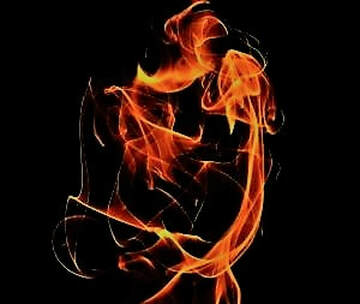|
by François Laruelle Designates, for non-psychoanalysis, the side of reality of jouissance, itself determined by the Real or Enjoyed-without-enjoyment [Joui-sans-jouissance]. Deprived of its philosophical essence of self-desire or desire of the Other's desire, it loses its determining role which philosophy through Plato and psychoanalysis through Lacan granted it. Desire, at least when it’s not understood, as in the classical, notably Thomist tradition, as a mask of the will or, in Kant, as having its destination in the latter which would constitute its superior form, is often defined as the essence of man: either under its simple form (Spinoza), or under the reflected or duplicated form of a desire-of-desire (Kojève), or finally under the triadic form mediated by representation (Plato, Girard). In the desire of Hegelian recognition, “the two fall together as three,” because recognition is created in relation to the Idea of man intervening in the third position among animals that are mistrusted, being understood that Hegelian desire is the consequence of life. In psychoanalysis, desire is itself triadic since it is advisable to discern here, either in Freud, the representation of the affect (desire itself differing from the one as well as the other, representationnot being libidinal as such and anxiety, for example, consisting in a non-desired and even undesirable affect); or in Lacan, the object of the cause. The cause of desire is the castration of the “subject;” the object is contingent. Desire “not giving up on its desire” (Lacan) founds the ethics of psychoanalysis. Verdiglione and Deleuze, in different directions, dissociate desire and castration: the former, because he situates desire and jouissance (whose condition is castration) on opposed sides of the unconscious; the latter, because he rejects law and castration in general, affirms the plenitude of desire indentified with creativity and subtracts it from the lack to which, on the contrary, he submits all psychoanalysis. “Non-analytic” desire is “simplified” since it finds its non-Platonic essence in the nonautopositional transcendence of jouissance or affect of the Other in the sense that nonphilosophy intends; like it, desire has its condition in the Enjoyed or Real-of-the-last-instance. Its transcendence constitutes it into the desire (of) the Other. The way in which Lacan grasps it is a redundant structure; indeed the desire (of) desire testifies not only to his affiliation with Kojève but also to the structure of the philosophico-analytic mixture in general where the philosophy of desire obviously has a privileged place. Desire can only escape from philosophical and psychoanalytic authority if its cause is no longer the Real as lack or castration, but the Enjoyedwithout-enjoyment insofar as it determines it in-the-last-instance. In fact, desire finds its identity in jouissance with the syntax which is the property of the Unconscious. This identity defetishizes it and dismantles its relation with repetition, diffèrance, the letter, and the symbolic as it has been advanced by the restrained deconstruction which sets its post-Lacanism in the Idea of a constitutive Alterity and a One insufficient to itself via the mode of an “I desire, thus You Enjoy.” Its setting in relation with its essence of the nonautopositional Other dismantles the circle of desire and liberates thought from phantasmatic desire: enjoyed loss—thus Freud designates it—of the hallucinatory object of satisfaction. A loss which neither grounds an identifying “hysteria” nor a traditional lack of desire (in aphanisis), nor the unconscious insistence on incest as in schizoanalysis. Desire is not desiring (of) self or (of) the desire-of-the-Other by its essence; it is instead a clone enjoyed-in-the-Real, even if it is cloned from philosophico-analytic desire. excerpt from the book: Dictionary of Non-Philosophy by François Laruelle
0 Comments
Leave a Reply. |
Steven Craig Hickman - The Intelligence of Capital: The Collapse of Politics in Contemporary Society
Steven Craig Hickman - Hyperstition: Technorevisionism – Influencing, Modifying and Updating Reality
Archives
April 2020
|

 RSS Feed
RSS Feed
